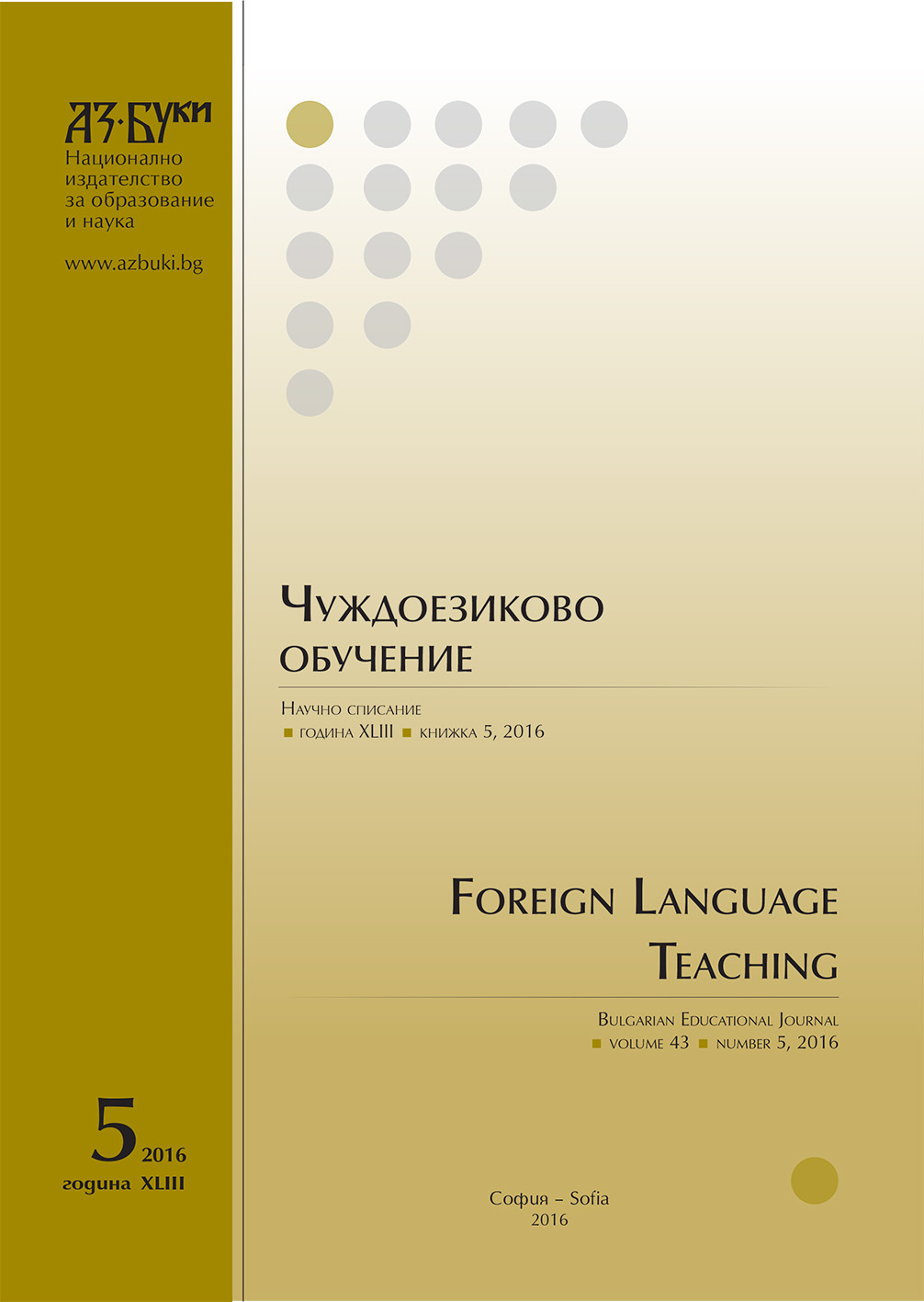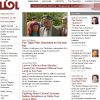
Around the Bloc: Poland’s Tusk Takes Over Top EU Post, Moldova’s Pro-West Alliance Likely to Retain Power
Plus, the pope urges Turkey to open doors to Armenia, and a new Russian convoy enters eastern Ukraine.
More...We kindly inform you that, as long as the subject affiliation of our 300.000+ articles is in progress, you might get unsufficient or no results on your third level or second level search. In this case, please broaden your search criteria.

Plus, the pope urges Turkey to open doors to Armenia, and a new Russian convoy enters eastern Ukraine.
More...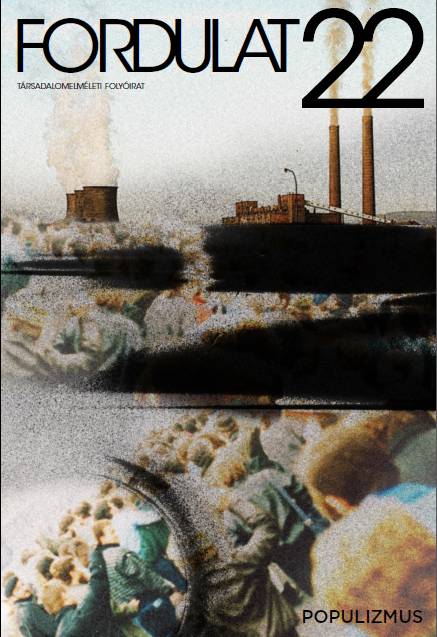
Tracking the terms „populism“ and „the people“ from the 19th century, Marco D’Eramo offers a striking new interpretation of their current applications—the first levelled indiscriminately at any political force that steps outside the bounds of convention, the second banished from the scene.
More...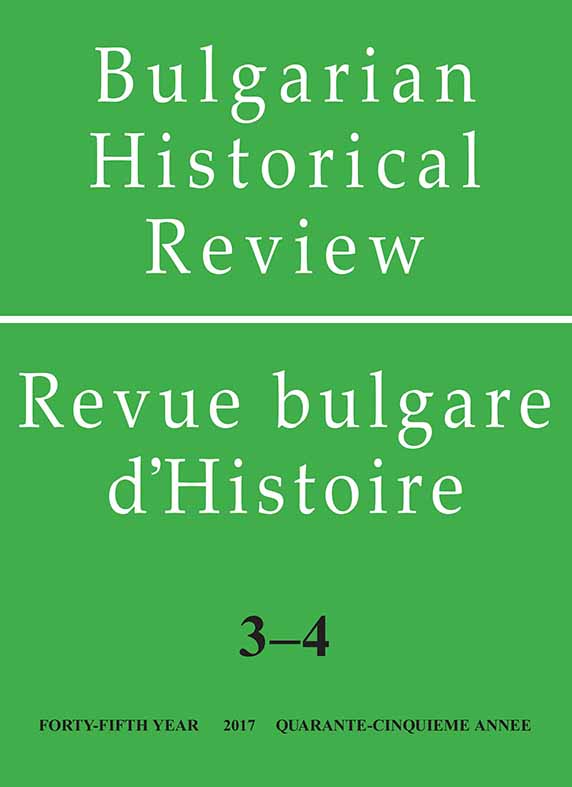
A major objective of this article is to reveal the essence of the concept of Bulgaria’s healthcare policy in the period from 1879 to 1912. It is based on a detailed study of the debates accompanying the preparation, discussion and adoption of all laws related to healthcare in post-liberation Bulgaria. Their analysis makes it possible to conclude that the formation of the basic concept of this kind of policy began already with the establishment of the first governing structures in the territories liberated by the Russian troops. At its core were the aspirations of the authorities to regulate all the necessary care that the state had to take to improve the health and to reduce the mortality among the population. It was of decisive importance for the realization of this process and for the gradual increase of the life expectancy of the population inhabiting the country.
More...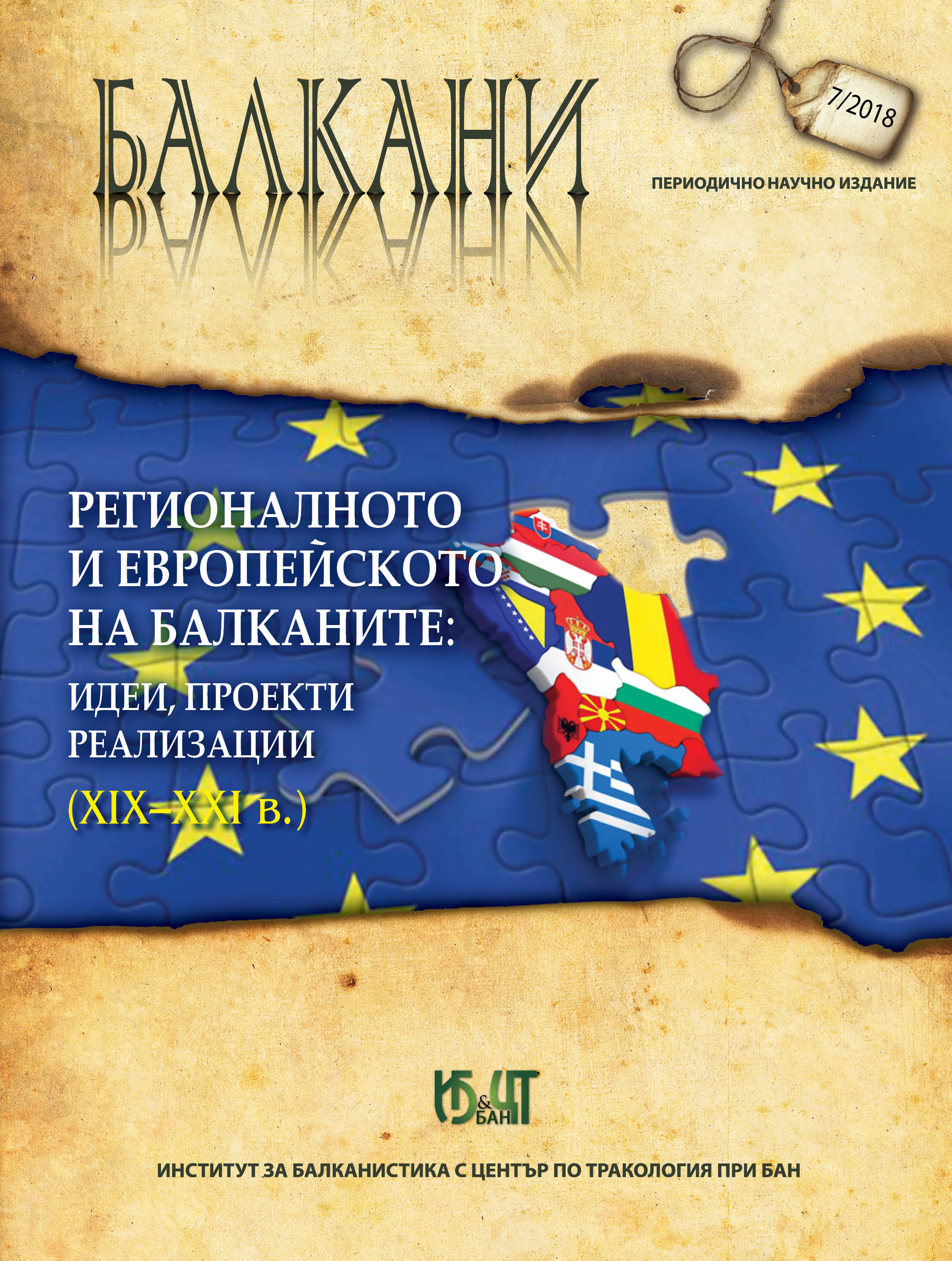
This article is dedicated to the modernization in the Republic of Turkey that took place from its establishment in 1923 until the end of the 20th century. It analyzes Mustafa Kemal’s approach to modernization, which has imposed a radical separation with traditional Islamic values and Ottoman tradition. Despite the quick enactment of a European legislation and the restructuring of the country to a European model, the change in Turkish people’s identity has not been without difficulty. Alongside the introduction of a multiparty political system, the traditional Islamic values have made their way into the political scene, and shortly thereafter the Turkish army begins to intervene directly in political life as a guardian of the secular nature of the state, but at the same time undermines its democratic foundations. The movement toward a liberal political life during T. Özal’s administration has irreversibly shifted the direction of Kemalist Turkey’s development. The necessity of the merging of Islamic cultural identity with European values has sparked a public debate, marked by an uneven advancement, testing the country’s worldly stature.
More...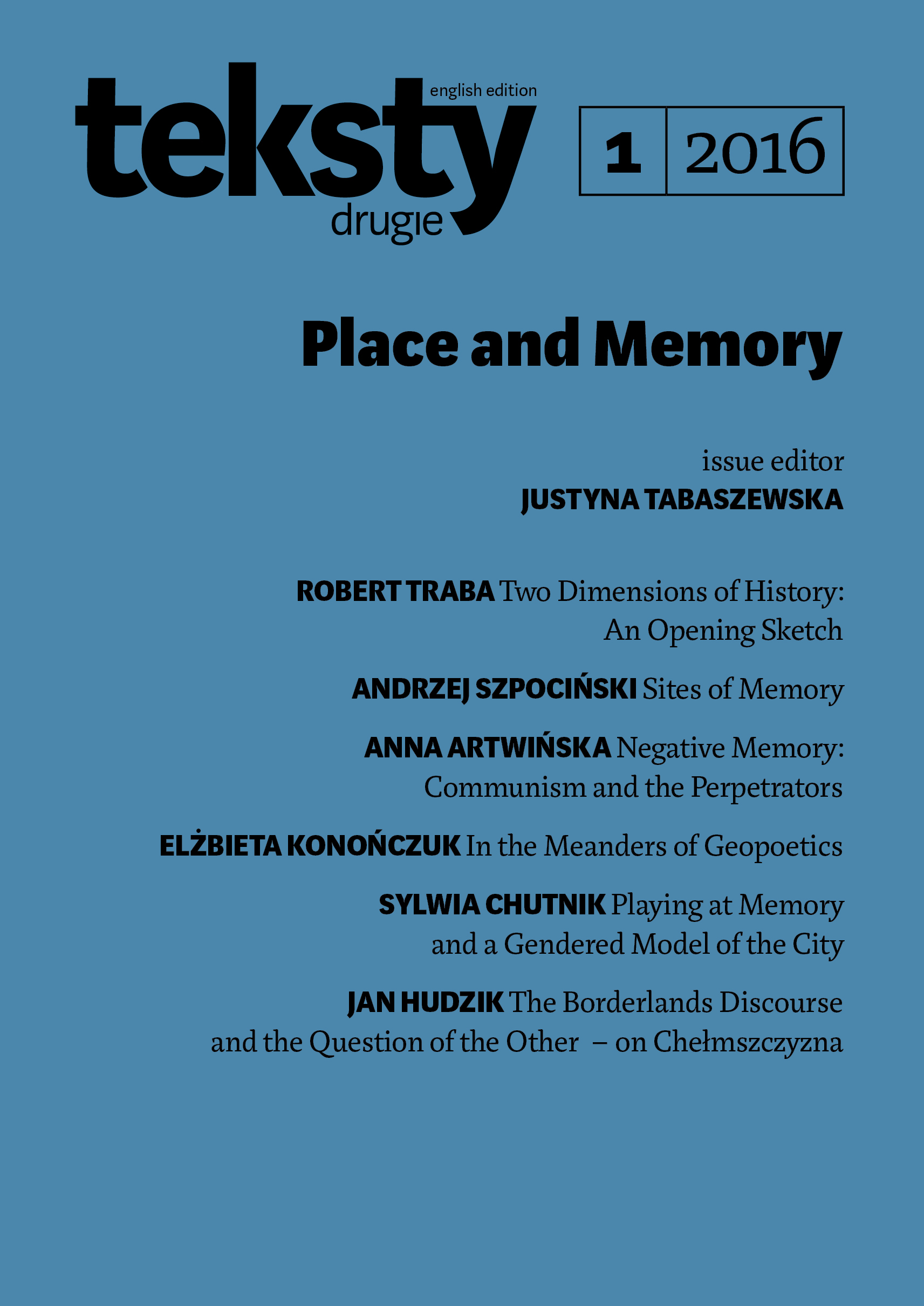

This article tackles the problem of how we understand the Other – a problem related to the dichotomy of ‘us vs. them’ in divided communities. Nycz identifies two dominant positions in this area: the Eurocentric position, which corresponds to European and North American anthropology’s universalist approach, and multiculturalism, which recognizes the equality of cultural variants. Both perspectives, Nycz argues, have reached an impasse: the first because by has appropriated the debate and attained a dominant position over the Other, and the second because it tends to stifle theoretical conflict, which risks weakening its ethical engagement. Nycz postulates a different approach. The ability to see individuals and the community (culture) from the perspective of the Other (a perspective that may be internalized or external) is posited as an inherent element of critical self-knowledge. Bakhtin’s notion of ‘outsidedness’ or ‘exotopy’ (vnenakhodimost) represents for Nycz a solid foundation to develop a universal category of historical cultural anthropology.
More...
The article discusses postmemory landscapes, understood both as a spatial disposition of Eastern and Central Europe, and their cultural – especially photographic, filmic, and literary – representations. The author shows that those landscapes allow to reconsider two crucial problems in the light of memory and trauma studies: i.e. spatial dimension of remembering and the meaning of site/landscape for the experience of postmemory, as well as the reinterpretation of the archive of visual clichés related to the representation of space, which is marked by historical trauma.
More...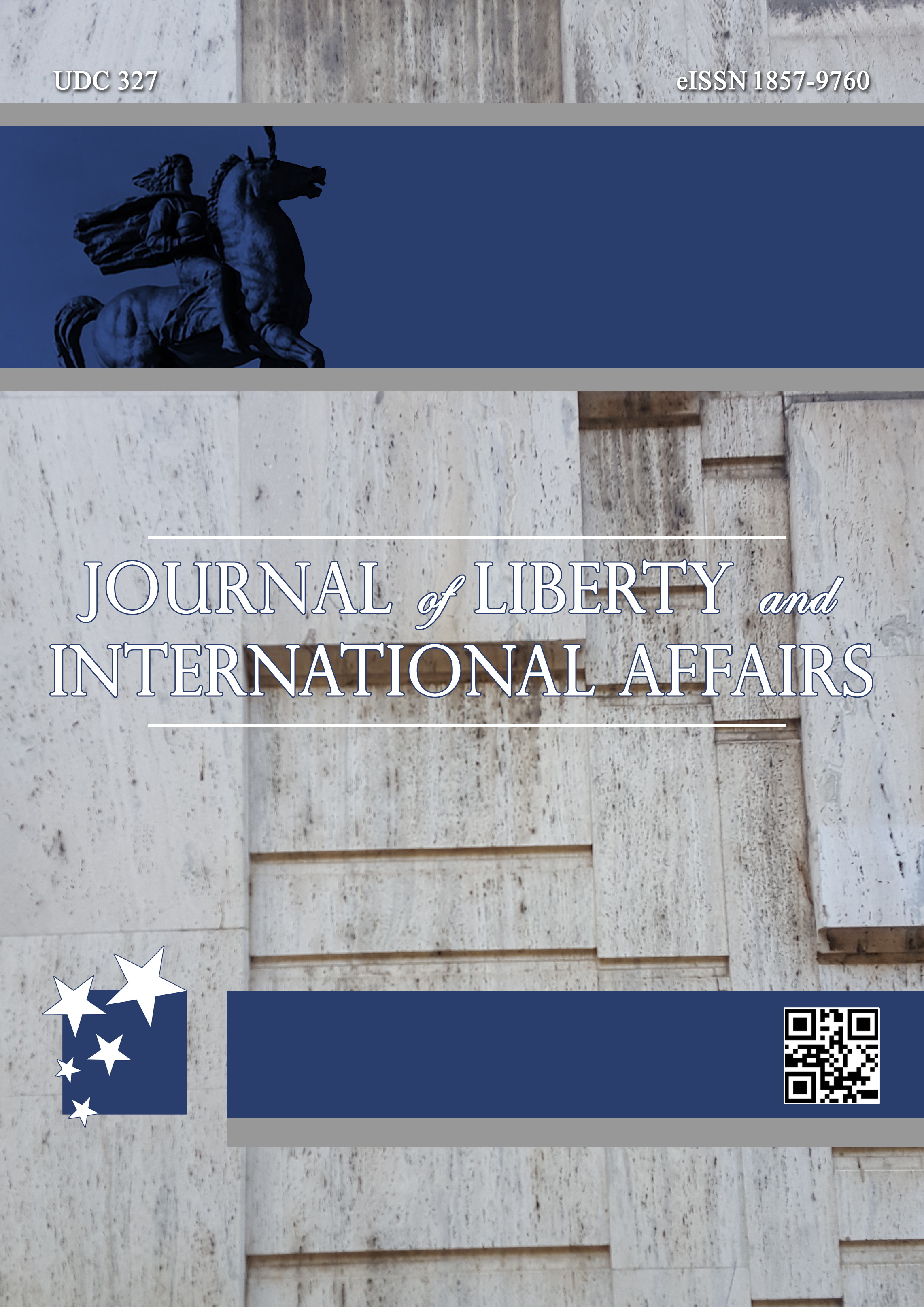
This paper tries to further elaborate one of the most important external powers of the European Union: Its “reforming power” which goes in parallel with its ability as “normative actor” in the Western Balkans. Through Albania as a case study, it tries to argue that the process of Albania’s integration to EU has transformed the country in several directions: by introducing a deep juridical reform and by the full alignment of its foreign policy with CFSP and the “regional cooperation”. In fact, under the auspices of the EU integration, the country is making all the efforts to deliver on one of the most transformative reforms undertaken in the region, that of the justice system. This gives to EU the features of a “reforming power”. The term shows EU as a driving force which makes countries undertake deep reforms they would not have differently realized, if not under the conditionality for the EU integration.
More...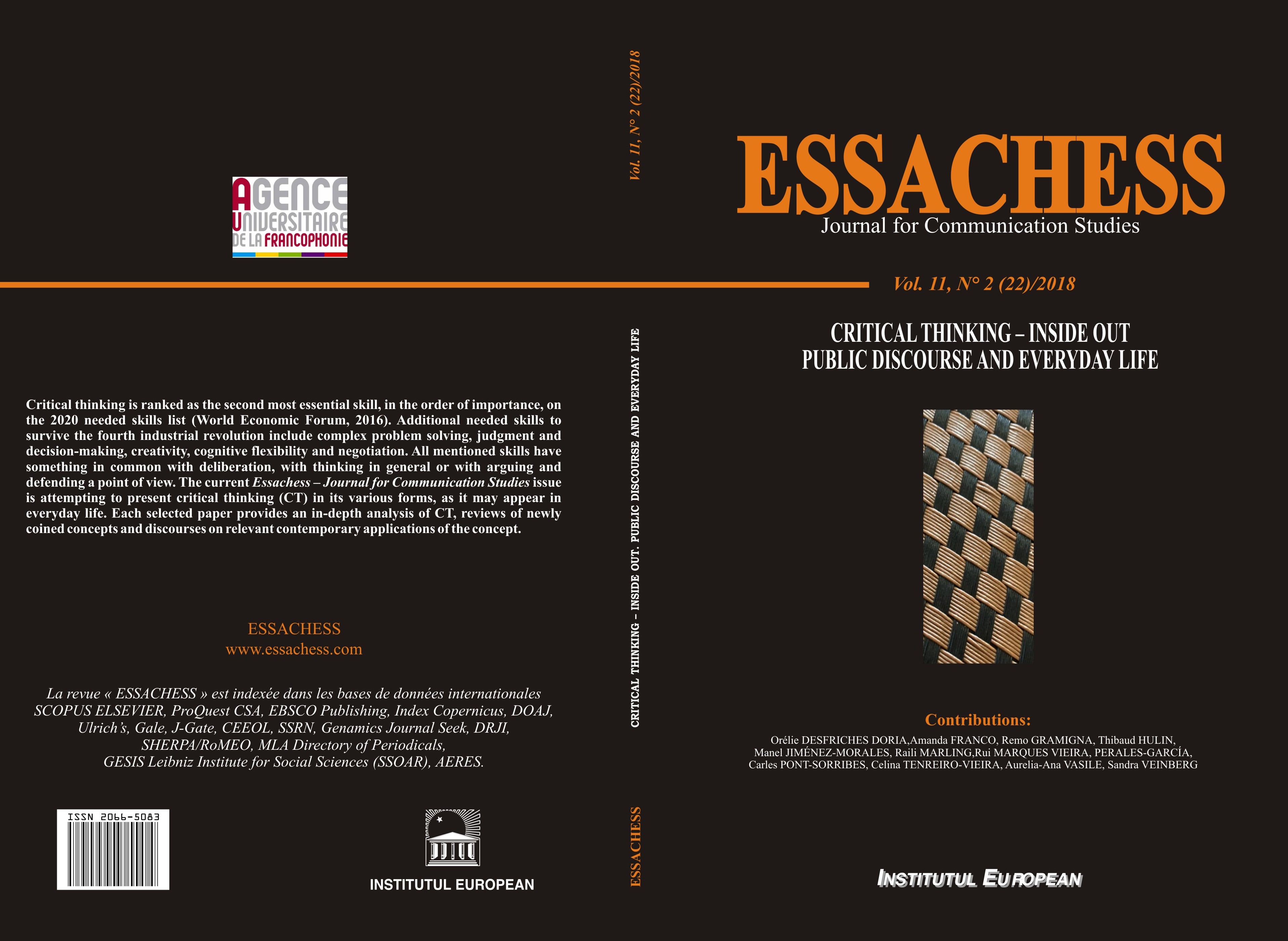
Critical thinking and effective communication are indispensable skills in any professional setting in contemporary globalized and computerized society. The era of globalization and the Internet pose new challenges to education. On the one hand, people have immediate, global, and facilitated access to information. On the other hand, the increasing amount of information inevitably requires one to operate in a selective and analytical way, and to be able to critically evaluate the knowledge and information acquired. These abilities are instrumental in effective decision-making processes and complex problem-solving in the contemporary world. Moreover, critical thinking skills have a direct impact on fostering initiative, autonomy, and leadership. This paper argues for the relevance of scenario theory and practice for critical thinking. Scenario analysis has been used in complex planning domains, cybernetics, business organizations and in vocational education, but we suggest that this approach can also be used more widely in developing critical thinking. In this article, a scenario refers to a set or collection of projections of future events (Wall, 1983). By allowing the investigation of the ‘what if’ questions, scenarios make in-terpretations about the future and engage with the domains of the possible, probable and hypothetical. Indeed, scenarios allow us to envision possible futures and alterna-tives in a hypothetical course of events. Viewed through this perspective, scenarios could be included in the toolkit of critical thinking as self-reflective tools to assess the present. How, then, could imaginary scenarios enhance critical thinking? After an introduction about the concept of scenario, we will test the scenario-based ap-proach to critical thinking in a two-level analysis. We will first analyze the scenarios employed in a corpus about climate change awareness (NASA Global Climate Change and Yale Climate Connections) and climate change denial websites (Watts Up With That and Climate Depot). Thus, we will build on the research by Oreskes & Conway (2010), Dunlap (2013) and others on the communication of contested science. The Internet plays a central role in shaping public perceptions today and hence needs to be discussed seriously as a source of misinformation. We will ana-lyze how scenarios are used by the two competing interest groups. In the second phase of analysis, the results will be used to develop pedagogical advice for using scenarios in teaching critical thinking.
More...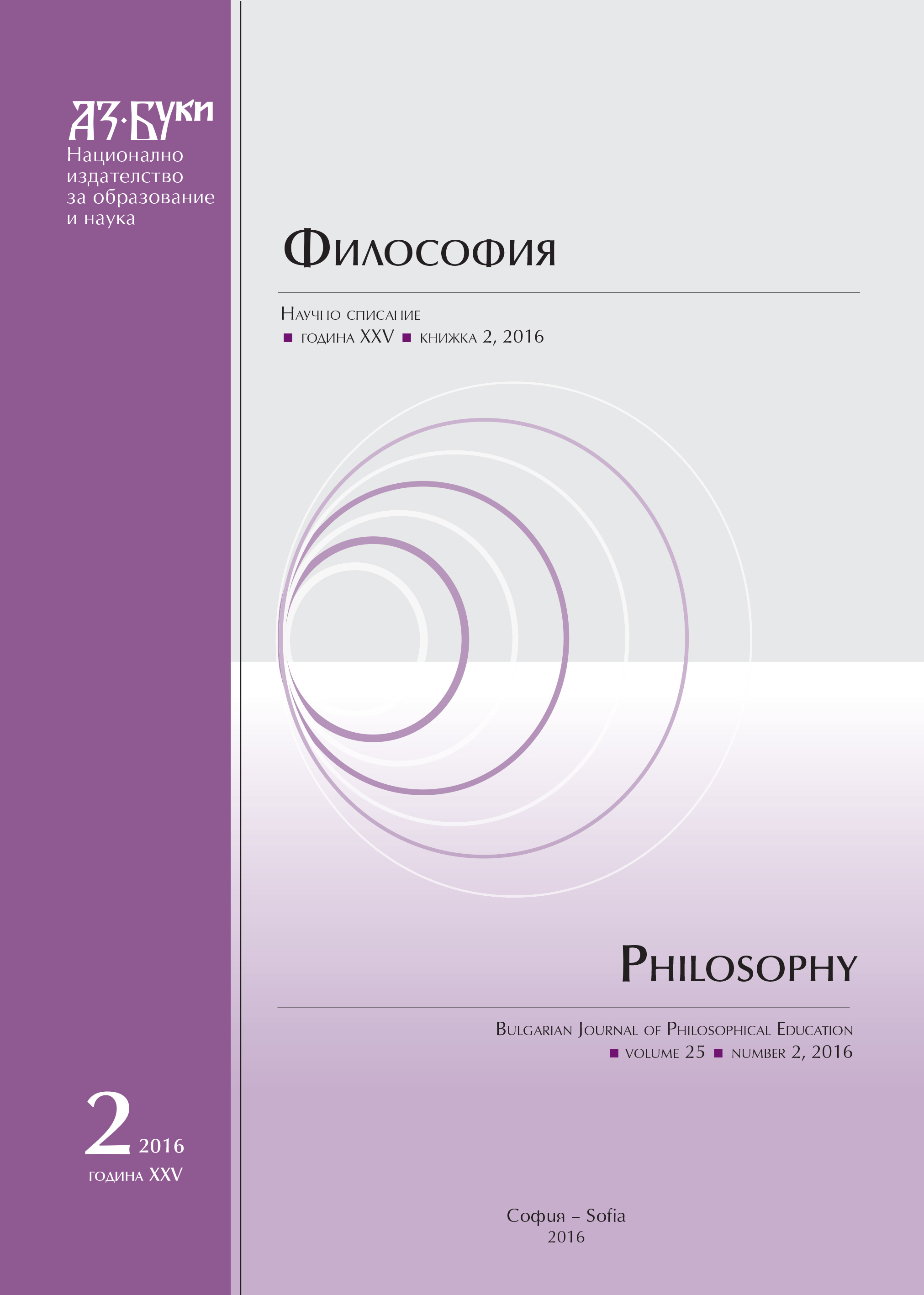
In the following article different problems of the biopolitics are investigated. The biopolitics is a power which decides on the questions of life and death. The biotechnologies and their development, the solving of questions in which cases and under what conditions they to be used set up new and new biopolitical questions. The J. Habermas position on the role of the biotechnologies in solving the questions of life and death is presented and analysed.
More...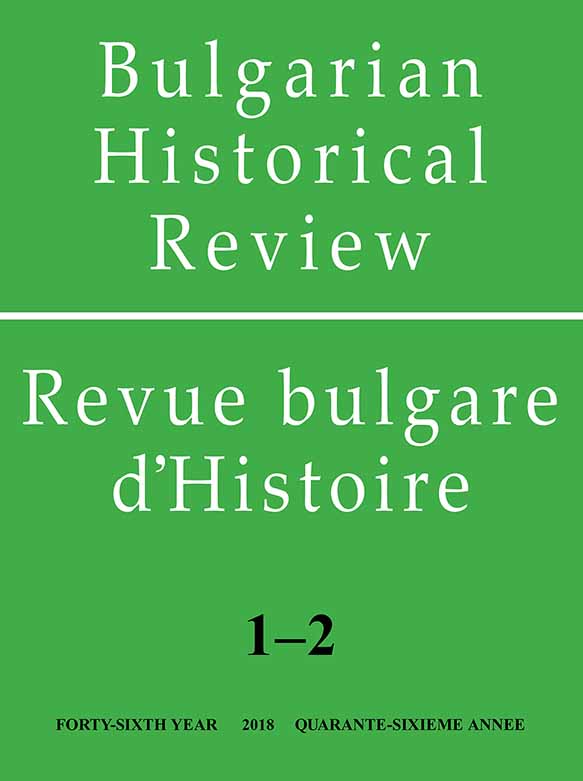
The article is dedicated to the study of language safety issues, determination and analysis of implementation level of linguistic provision of national security in the context of global information security. The author made scientific and terminological comments of “language safety” concept, looked through language safety provision in Azerbaijan and other countries from language tolerance viewpoint.
More...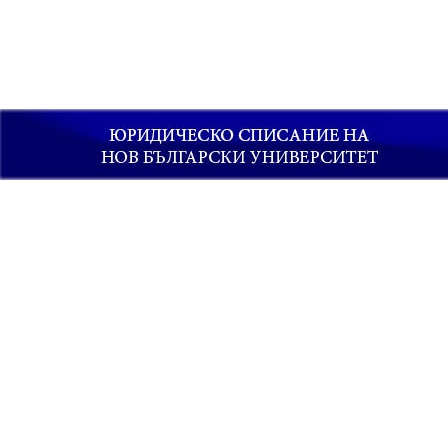
This report does not analyse the whole range of implications of parties and elections relationship and impact on political representation and constitutional government but concentrates on comparative constitutional and paraconstitutional interrelationship between parties and elections and of the international standards on the role of parties and elections to the representative government as provided in mainly the Venice commission documents. To avoid redundancy by repetition and the situation when my comparison attempts of the emerging national models and best practices would be tantamount of bringing water into a well I will limit my which should be considered as a part of the whole treatment of the issue by the speakers of the present panel. My report is based on the international and especially European standards established mostly in the soft law instruments of the Venice Commission of the Council of Europe and OCSE ODIHR. Without any doubt issues of parties and elections relationship and its impact on political pluralism, inter party and intraparty democracy in comparative perspective deserve special attention but for the present purposes and fear from excessive length I will limit myself.
More...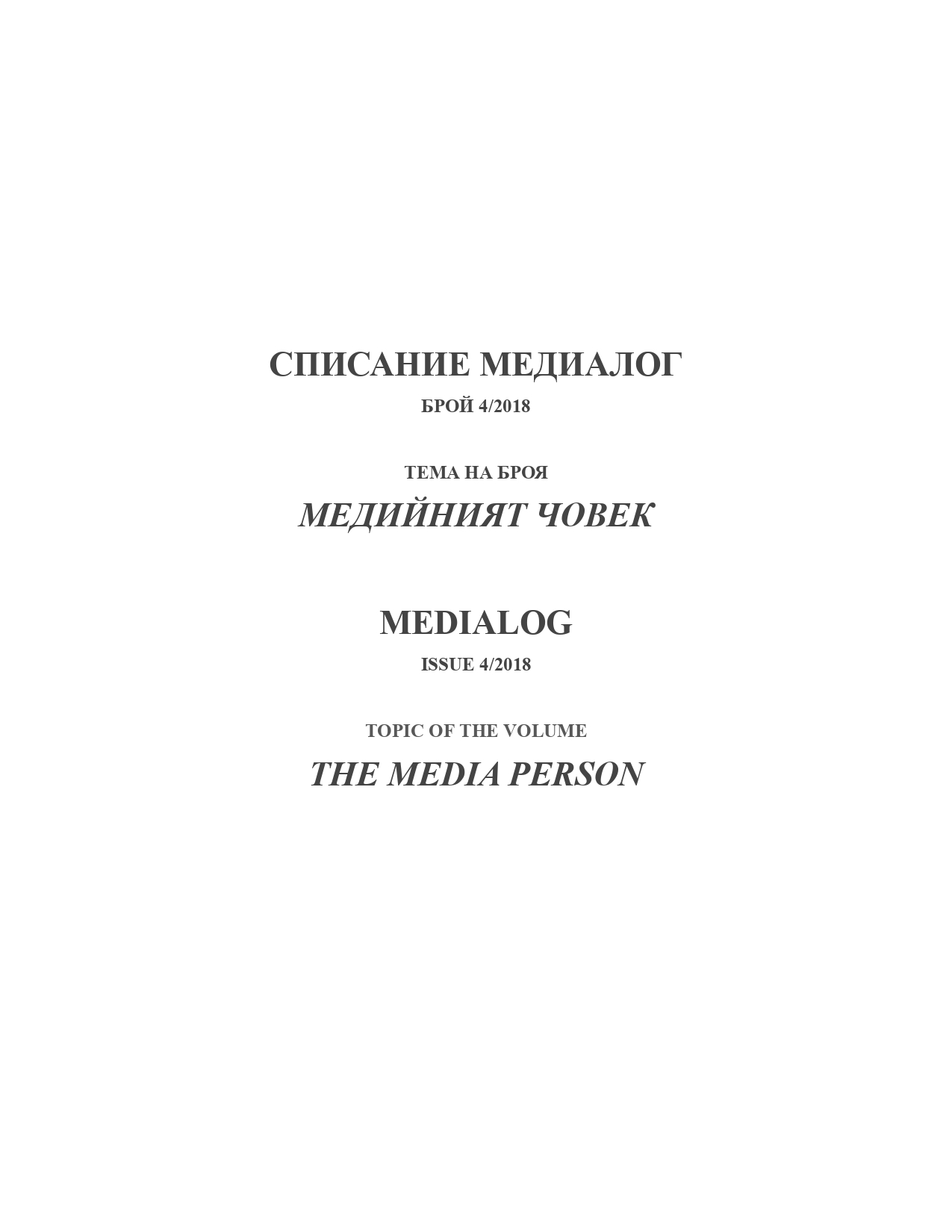
In the following text we will present the reaction of the Bulgarian youths from the 1980s to three extraordinary and practically „new“ events for this period in our country, according to the archives of the Information and Sociological Center of the Central Committee of the Bulgarian Communist Party. We are examining the reaction of Bulgarian youths to the Revival Process, the Chernobyl accident and the AIDS virus, and our aim is to follow both youth’s views on current events and the behavior of the media and institutions – as a rule they function differently in one closed and authoritarian political system.
More...
The text presents the results from a research of professional periodicals dedicated to radio and radio journalism during the socialism period in Bulgaria. The research has following aims: to track the topics discussed by the professional community; to search the correlation between ideological and professional content; to ascertain to what extent the foreign experience penetrates into the radio related periodicals.
More...
Review of the book 'Governmentality of poverty. Hygiene and medicine in interwar years'. Sofia: Iztok-Zapad of Veronika Dimitrova (2018)
More...
The research is implemented by fourth year students in European studies at Sofia University as part of the subject ‘Media analysis’ (2017/18 academic year, prof. Snezhana Popova). Research by a team of students in European Studies, Faculty of Philosophy: Anna Angelova, Borislava Uzunova, Deliya Stoilova, Dessislava Filipova, Dobromira Yotovska, Iva Teneva, Konstatin-Kiril Yosifov, Madlen Nikolova, Plamena Grozeva, Plamena Ivanova, Ralena Gerasimova, Svetlana Yordanova, Siana Velkova, Siyana Ulyanova, Tsveta Paunova
More...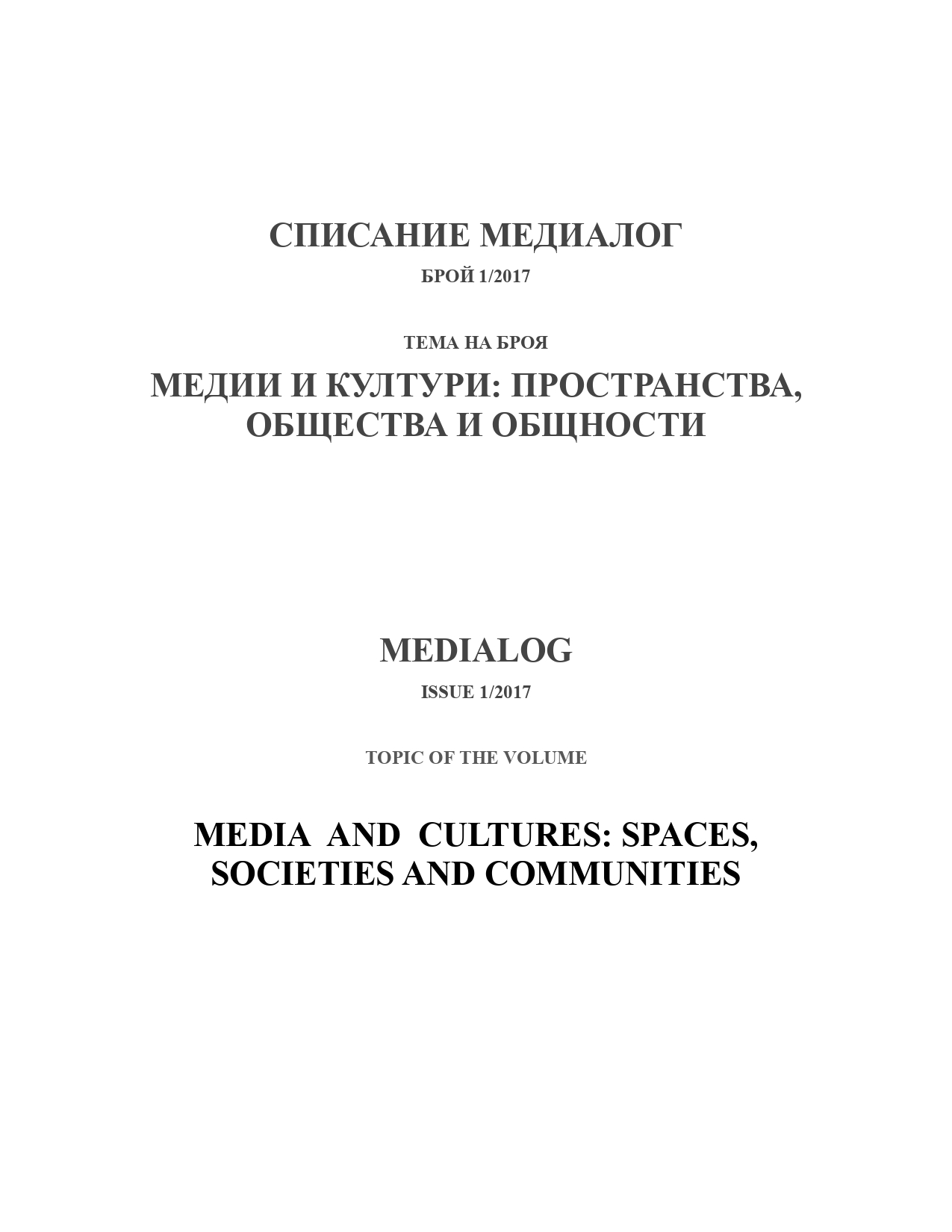
A review of the book ‚Monologue or dialogue? The controversial world in the lens of global television‘ by Maria Neikova, ‚St. Kliment Ohridski‘ University Press. This is an outstanding study, which is concerned with the topic of the still most popular media product, namely the television newscast. The book is a meeting point of state and media politics, cross-continental, cultural and religious differences, and views on international communication. The enormous literature review and original interpretations are valuable for researchers from various academic fields.
More...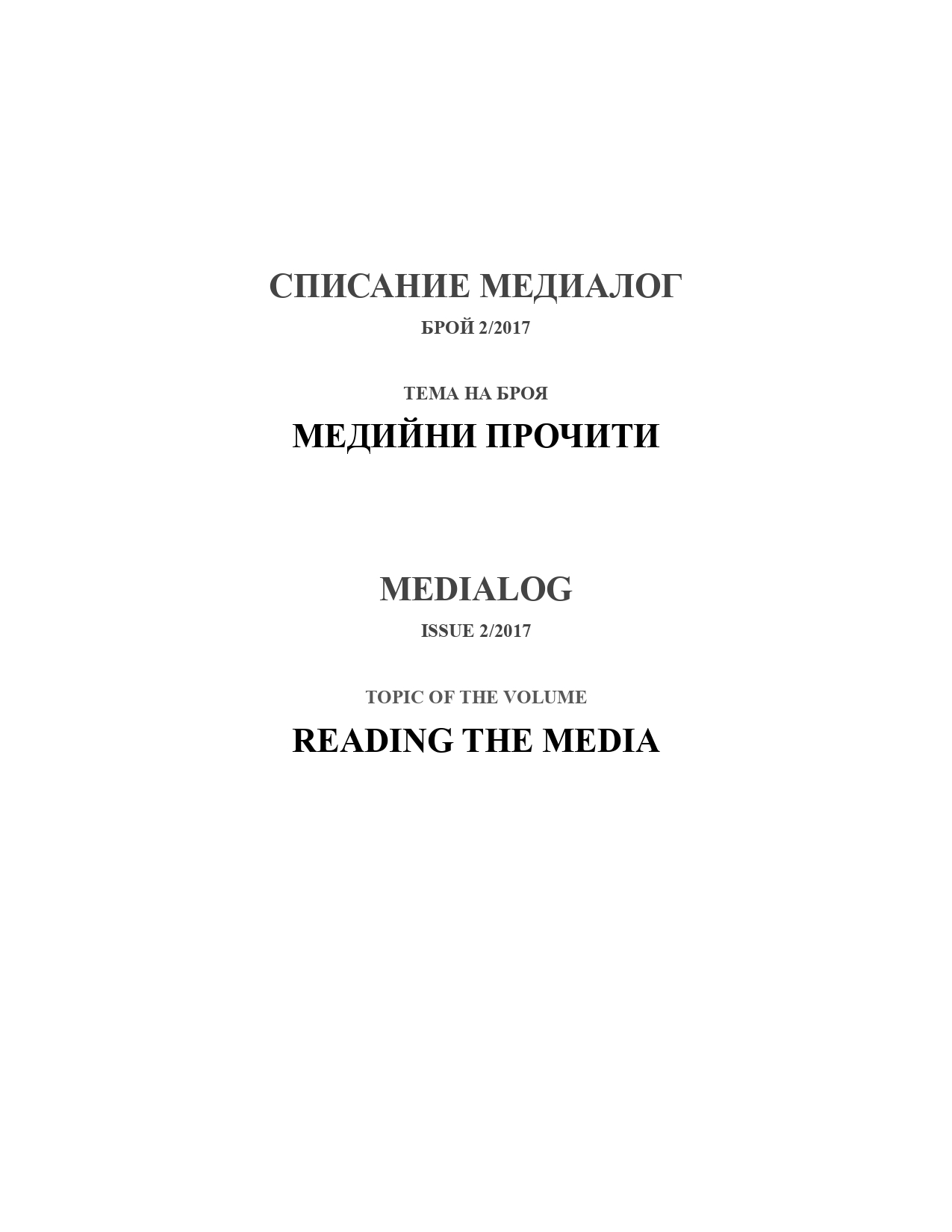
‘Centre and Periphery of the Europeanised Public Spheres’ by Ralitsa Kovacheva – book review
More...
Book review : ‘Sofia: Ideology, Urban planning and Life under Socialism’ by Elitza Stanoeva
More...